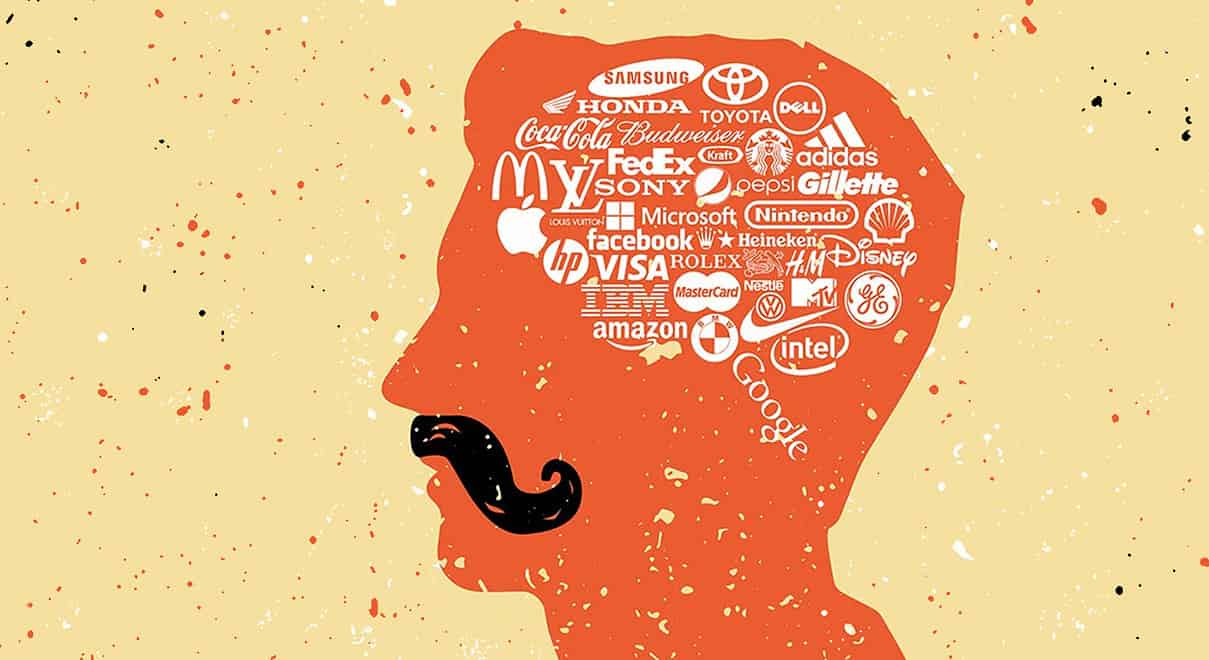Branding is an essential component of any business strategy, as it helps shape the way consumers perceive and interact with a brand. Behind the seemingly simple visual elements and messaging lies a complex network of psychological processes that contribute to the overall success of a brand. In this article, we will delve into the fascinating world of branding psychology and discuss key factors that make a brand memorable, exploring the intricacies of each element and its influence on consumer behavior.
The Power of Emotion
Emotions play a significant role in our decision-making process and influence our behavior. Brands that evoke strong emotions, whether positive or negative, tend to leave a lasting impression. By tapping into these emotions, a brand can create a deep connection with its audience, making it more memorable and influential.
For example, consider Apple’s iconic “Think Different” campaign, which celebrated creativity and innovation, connecting with people who saw themselves as free thinkers and visionaries. The campaign evoked a sense of belonging and pride, leading to a strong emotional connection with the brand. This emotional connection can be further reinforced by using emotive language, impactful visuals, and compelling storytelling that resonates with the target audience’s values, desires, and aspirations.
Consistency in Branding
Consistency in branding is crucial to building trust and familiarity with consumers. By maintaining a consistent visual identity, tone of voice, and messaging across various platforms, a brand becomes easily recognizable and memorable. This consistency extends beyond the logo and color scheme – it also encompasses the brand’s values, personality, and overall identity.
Think of Coca-Cola, for instance. The brand’s red color, Spencerian script, and distinctive bottle shape have remained consistent over the years, making it instantly recognizable and memorable. This consistency reinforces the brand’s identity and builds trust among consumers. By establishing a clear and consistent brand identity, a brand can create a strong foundation for long-term memorability and success.

Storytelling and Brand Narrative
Humans are hardwired to respond to stories. They help us make sense of the world and connect with others on an emotional level. A compelling brand narrative can engage consumers and make the brand more memorable by providing context, meaning, and purpose.
Nike’s “Just Do It” slogan is a perfect example of effective storytelling. The simple yet powerful message resonates with people’s aspirations and dreams, creating an emotional connection that transcends the product itself. By telling a story that aligns with the audience’s values and aspirations, a brand can become memorable and influential. Furthermore, incorporating elements of storytelling into various aspects of branding – from advertisements to packaging – can reinforce the brand narrative and create a cohesive, memorable experience for consumers.
The Bandwagon Effect
The bandwagon effect is a psychological phenomenon in which people tend to follow the crowd and adopt the beliefs or behaviors of others. This can also apply to branding, as people are more likely to remember and trust a brand that is popular and well-regarded.
Social proof, such as testimonials, endorsements, and positive reviews, can help create this perception of popularity and trustworthiness. A brand that effectively leverages the bandwagon effect can become more memorable and influential among its target audience. Brands can also harness the power of influencers, partnerships, and collaborations to further amplify the bandwagon effect and enhance their memorability.
The Mere Exposure Effect
The mere exposure effect is a psychological principle that states that the more we are exposed to something, the more we tend to like it. This can be applied to branding as well. By repeatedly exposing consumers to a brand’s logo, colors, and messaging, a brand can become more familiar and, therefore, more memorable.
A well-executed marketing campaign that reaches consumers through various channels (e.g., social media, TV, print, and online ads) can contribute to increased brand exposure and memorability. Additionally, by creating engaging content and forming strategic partnerships, a brand can further increase its exposure, leading to a stronger connection with its target audience.
Simplicity and Clarity
In a world of information overload, simplicity and clarity are more important than ever. Brands that convey a clear and simple message are more likely to be remembered. This involves simplifying complex concepts, avoiding jargon, and focusing on the core message that resonates with the target audience.
Take Google, for example. The brand’s minimalist logo, clean interface, and straightforward functionality all contribute to its memorability and popularity. By keeping things simple and focusing on the core message, a brand can cut through the clutter and make a lasting impression.

The Power of Association
Creating strong associations between a brand and specific qualities, emotions, or experiences can enhance memorability. This can be achieved through consistent messaging, strategic partnerships, and carefully crafted brand narratives. When a brand becomes strongly associated with positive attributes, consumers are more likely to remember and choose it over competitors.
For example, Tesla is strongly associated with innovation, sustainability, and luxury. These associations not only set the brand apart from its competitors but also make it more memorable in the minds of consumers.
Differentiation and Uniqueness
In a saturated market, standing out from the competition is essential for a brand to be memorable. Brands that differentiate themselves through unique selling propositions, innovative products, or exceptional customer experiences are more likely to leave a lasting impression on consumers.
Consider the example of Amazon, which has differentiated itself through its vast product selection, fast shipping, and customer-centric approach. By offering a unique and compelling value proposition, Amazon has become one of the most recognizable and memorable brands in the world.
Understanding the psychology behind branding can help businesses create memorable and influential brands that resonate with their target audience. By tapping into emotions, maintaining consistency, crafting compelling narratives, leveraging social proof, maximizing exposure, embracing simplicity, forming strong associations, and differentiating themselves from the competition, brands can make a lasting impression on consumers and achieve long-term success in the marketplace. By incorporating these psychological principles into branding strategies, businesses can create a strong and memorable brand identity that leaves a lasting impact on their audience.


